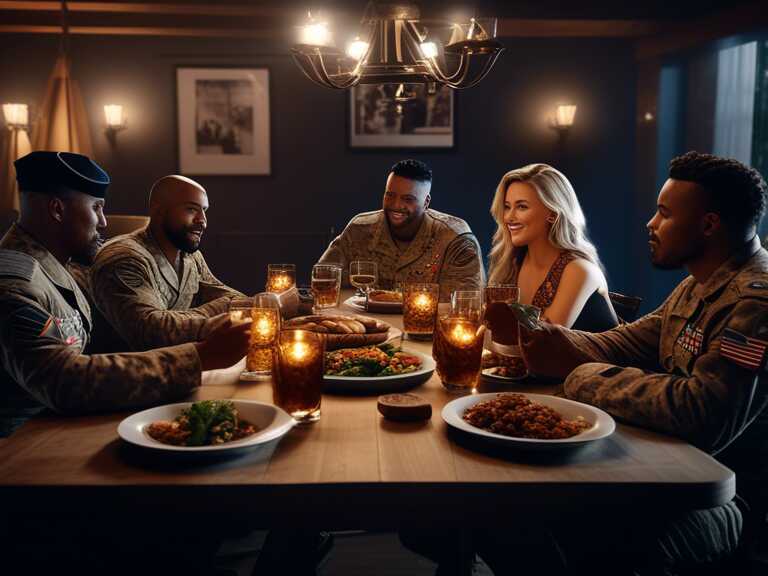
Veteran Caregiver Shantel Cross Provides Family Environment for Aging Vets in Medical Foster Program
Veterans find family in medical foster homes, receiving care and companionship from caregivers like Shantel Cross who opens her home to serve.

As the sun sets over Baltimore, Shantel Cross and her two children prepare dinner for their special guests - veterans Charles McCoubrey, Peter Samaras, and Ekkehard Thies. The sense of belonging and camaraderie is palpable as the three men take their seats at the dinner table, expressing their gratitude for the warm and familial environment.
An Innovative Approach to Care
The Department of Veterans Affairs has spearheaded an innovative approach to caring for veterans in the latter stages of life. The medical foster home program, which originated in 2002 in Arkansas, Florida, and Puerto Rico, has now grown to encompass over 700 veterans receiving personalized care from approximately 500 dedicated caregivers.
All three veterans living with the Cross family served their country during the late 1960s and early 1970s, with McCoubrey in the Navy and Samaras and Thies in the Army. Despite their military allegiances, the good-natured banter and mutual respect among them underscore the familial bonds they have formed.
A Nurturing Environment
Shantel Cross, a former nursing home employee, recognized the opportunity to create a more comfortable and nurturing environment within her own home. The veterans receive regular visits from medical professionals and social workers, and are also taken to various external services and activities, contributing to their overall well-being.
The close-knit bond between the veterans and the Cross family is evident in their shared activities, such as playing games, taking walks, and participating in various family-oriented endeavors. Dayna Cooper, the director of home and community care at the Department of Veterans Affairs, emphasizes the emphasis on treating veterans as part of the caregiver's own family, fostering a deep and meaningful relationship.
Recognizing the Value of Home
The program serves as a powerful testament to the healing power of home, especially considering that nearly half of the U.S. veteran population is aged 65 or older. With nursing home costs exceeding $100,000 annually, the medical foster program offers a more affordable option, with caregivers receiving an average of $2,800 per month from each veteran under their care.
Shantel Cross expresses her deep sense of fulfillment in being able to support and give back to the veterans, envisioning a future as a foster caregiver indefinitely. The program is open to all veterans enrolled in the Veterans Affairs system, emphasizing the commitment to providing a nurturing and familial environment for those who have served their country.
A Lasting Impact
The story of the medical foster home program exemplifies the significant impact it has on the lives of aging veterans, offering them a sense of belonging, care, and companionship in their later years. As the sun sets on another day, the warmth and love shared at the Cross family home serve as a beacon of hope and compassion for veterans across the nation.
Share news















